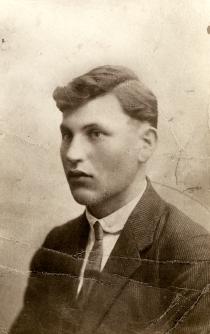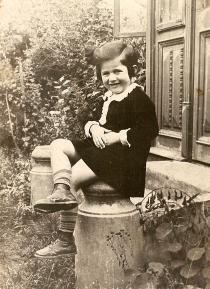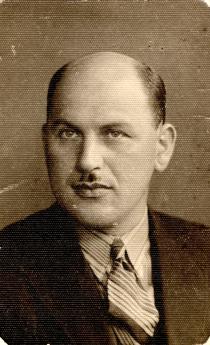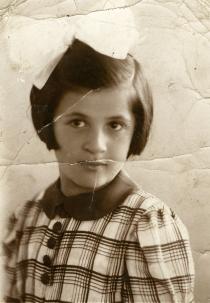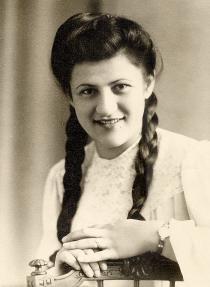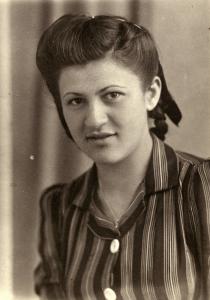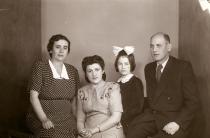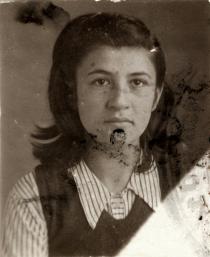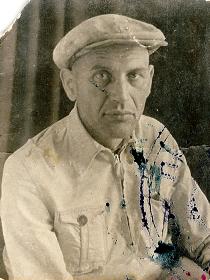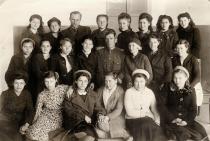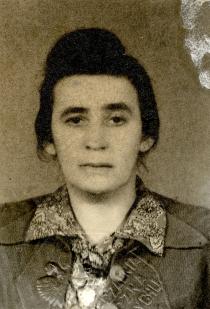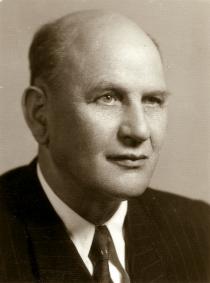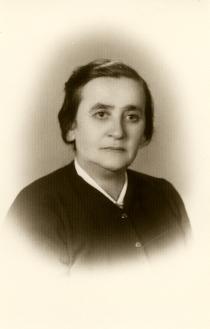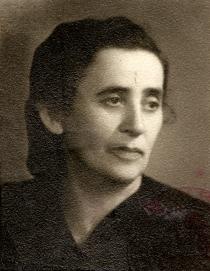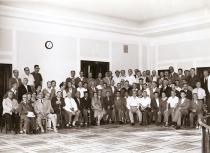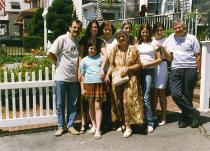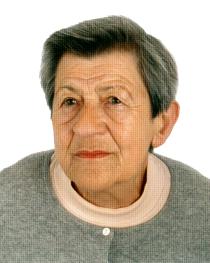This is my class in Tashkent [today Uzbekistan]. It was taken by a professional photographer when we were 15 or 16 years old. I think the girls of my class decided to take a picture without the boys. I sat during the lessons with Ewa, who is third from right in the last row on this photo. She was Jewish, but I can't remember her last name. The two girls next to her on the right, the first from left in the last row and the second from left in the middle row were also Jewesses. The teacher in the middle, in the uniform, taught us military arrangement. The headmistress is next to him on the right, she wears a beret. She didn't teach our class. The second teacher is standing in the last row. I don?t remember what he taught us.
When the German-Soviet war started in June 1941, my mom, me and my tiny baby sister, who was born in March 1940, left. My father stayed behind and then followed and tried to catch up with us. Wherever we could, we left notes where we're going, so my father found us. We ended up somewhere in Kazakhstan for about two or three months. My father decided that Tashkent would be a good place to take us. So we ended up in Tashkent, where the population multiplied fast, because everybody was escaping as deep into the Soviet Union as they could, at this point into Asia.
I learned Russian pretty fast. Maybe because I had the Ukrainian base encoded somewhere from my childhood and the year at school when I studied in Ukrainian. So I didn't have problems adapting to a Russian school. My parents still spoke Yiddish to each other, and so did I, as far as I remember. But my father decided that I had to study Polish. So he found ? I have no idea where and how ? Arnold Slucki to give me lessons. After a few lessons ? for which my father paid him as he had no other means of support ? the lessons were stopped. My teacher decided it was a waste of money, as I said point-blank that I?d never go back to Poland, so why should I study Polish. I learned how to talk back by then.
I had one close friend. She was Jewish, her name was Ewa, but I can?t remember her last name. She came from Central Russia, or maybe from Ukraine. She was a single child, her mother didn't work and her father was some kind of tradesman. We spent a lot of time together: at school, at the school courtyard, at the courtyard at home. I remember singing, talking. We didn't visit each other at home, because everybody had so little space, we were all squeezed into somebody else's house, the whole family crowded in one room. But because of the climate, social life could go on outside all year round.

